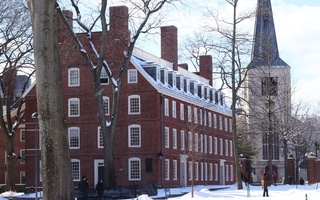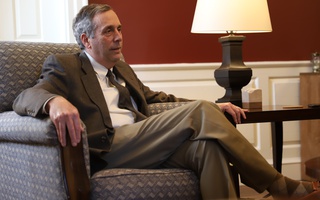{shortcode-c61e42a8811ae610b4d14396afe7bf5b156d907a}
The number of Harvard affiliates who reported testing positive for coronavirus reached 103 on Friday, according to a University website.
Harvard University Health Services regularly updates the website with self-reported cases of positive coronavirus test results by Harvard affiliates, which includes individuals who are no longer on campus.
University President Lawrence S. Bacow informed affiliates of the first Harvard affiliate who tested positive on March 13, just three days after administrators informed students they had to leave campus. Bacow and his wife, Adele F. Bacow, have since contracted and recovered from COVID-19 themselves.
Since March, the number of Harvard affiliates who have reported positive test results has grown steadily as the number of cases throughout the country skyrocketed and most Harvard students left campus and dispersed across the world.
As of March 18, HUHS reported that four University affiliates tested positive for the virus. By March 30 the number had climbed to 27, and since then — in just under a month — it has more than tripled.
HUHS asks all Harvard affiliates to contact HUHS if they test positive for coronavirus to “assess the impact” the outbreak has on the University.
HUHS Director Giang T. Nguyen wrote in an emailed statement to The Crimson that HUHS reviews communications about coronavirus and determines whether or not to follow up on a “case-by-case basis.”
Nguyen added that HUHS maintains “regular contact” with all affiliates who test positive and are still on campus. He wrote that some individuals self-report once their symptoms ease and may already be in contact with their own health care provider; in those cases, HUHS may decide to forego regular communication with that person.
HUHS recommends people who test positive self-isolate until they are told by their healthcare provider or the Massachusetts Department of Public Health they are able to resume their “normal, daily activities,” Nguyen wrote.
“Until that time, we recommend to the person that they stay home, and avoid close contact with anyone, including household members,” he added. “When possible, use a separate bedroom and bathroom, and avoid sharing common spaces, including kitchens.”
Nguyen also wrote that HUHS asks people who test positive to reach out to close contacts they had in the last 14 days, who will then also need to self-quarantine for two weeks.
According to the University’s coronavirus website, anyone who has not been contacted by the Department of Public Health is “not deemed to have increased risk” because of exposure to a person who tested positive for the virus.
—Staff writer Fiona K. Brennan can be reached at fiona.brennan@thecrimson.com. Follow her on Twitter @FionaBrennan23.
















